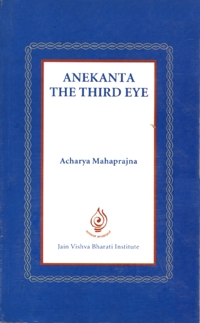
Let us not talk of absolute truth. We should accept the relativity of truth and that truth can never be absolute. Where there is absolute truth, there can be no discussion about the relative and the absolute. There languages cease. Only truth remains, no relativity or absolutism. That is why Bhagvan Mahavir has said, "Where there is indeed (real) truth, from there language returns. Neither intellect, nor thoughts nor even the mind goes there. All of them return. They are not able to reach there. All our alternatives stand on language and the intellect. The one who accepts the reign of language, of the mind, the intellect and thoughts, he has actually accepted the invitation of untruth."
There was once a very intelligent courtier. He progressed on the merit of his intellect and became the king's favourite. One day he sat down for a meal with the king. The cook brought the food. He served them and asked the courtier, "Tell me, how is the food?"
The courtier replied, "Very tasty". The cook intervened by saying, "0 King! Today I have used all my intellect to cook. Surely you too must be finding the meal very tasty?" The King replied, "Horrible. There is so much salt that it feels like eating poison, tell me what do you think," he continued looking at the courtier. The courtier agreed with him entirely. Astonished, the king exclaimed, "But just now you praised it. How can the food be both good and bad?" The courtier replied, "Sire, I draw my sustenance from food. I also draw my sustenance from you."
This becomes the situation: when we start drawing our sustenance from language, intellect and thinking, then we lose contact with truth. We go away from truth. In the world of language there is no way of getting in touch with truth except through relativity. Each statement is relative and we should try to understand their relativity. The question is why should we understand it so? There is sufficient reason for that. Its basis is the rule of the primary secondary nature of attributes. There are two aspects of truth about any object. One is the secondary attribute and the other the primary attribute. One is the manifested aspect or mode, the other the unmanifested aspect or mode.
 Acharya Mahaprajna
Acharya Mahaprajna
